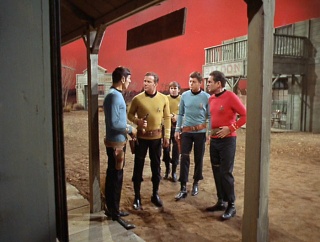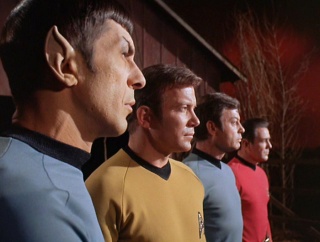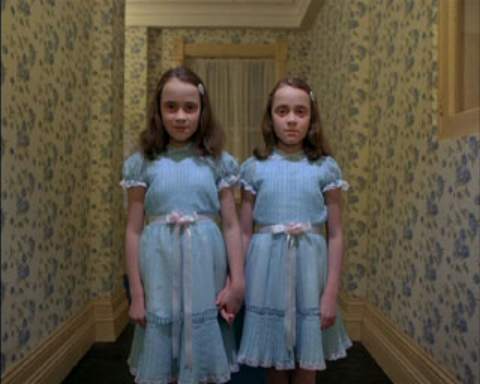After the screening, Herzog answered questions from the audience. A couple of questions centered on the editing process where we learned that it takes Herzog a few weeks to put the cut of the film together. He noted that Bad Lieutant took two weeks to edit after production of the film wrapped, demonstrating the power of desktop editing. Herzog stated how much he loves digital editing because he can cut as fast as he thinks. Herzog's comments on editing reminded me of what Jean Rouch wrote in his essay "The Camera and Man" on the future of filmmaking: "Tomorrow will be the day the self-regulating color videotape, of automatic video editing, of 'instant reply' of the recorded picture (immediate feedback)." It is striking that Rouch, who wrote this essay in 1973, was exactly right about the changes in technology for future filmmakers.
Another point that Herzog addressed is the rhythm or pacing of the film must be established in the production of the film. Herzog noted how he would have Klaus Kinski, who played Count Dracula, to move his hands slowly like a spider and then quickly attack "like a cobra."
One of the most striking moments in Nosferatu is when Jonathan (Bruno Ganz) travels to the "other world" of the Count's castle. There is a beautiful moment where he sits on the mountain as the score of Wagner's "The Rheingold Prelude" is heard. I wanted to ask Herzog how this moment came about, but the time for Q&A had expired. My take is that this is the moment that Jonathan transfers from the everyday world into the ghostly setting of Count Dracula. To create this metamorphosis into the other world, Herzog uses images of nature and Wagner. I wonder if this was a possible an allusion to the German mountain films of the 1920s? Slow and meditative cinema has always been one of my main points of interest and to see this moment on the big screen was something else.
Of course, Herzog had a ton of funny stories to tell such as working with Klaus Kiniski and the problem the rats had caused in Delft during the production. One story I felt was the funniest is that Herzog just recently learned what "coverage" means when shooting a film. Coverage is basically making sure you have filmed all the angles of the scene in case you run into any problems in editing. Herzog thinks coverage is ridiculous - just as he thinks it is silly that actors need to know their motivation when filming a scene. As Herzog told Nicholas Cage when shooting Bad Lieutenant (2009) - we are going for blissful evil - that's your motivation!
Herzog has made many movies and documentaries and is an important figure in the New German Cinema of the 1970s along with Rainer Werner Fassbinder and Win Wenders. He is one of the few directors, I believe, that he has always stayed true to his vision. Herzog informed us last night that being a director, first and foremost, is to be a leader. Herzog's Fitzcarraldo is a case in point how leadership and believing in your vision can produce beautiful art.
As Herzog stated last night... one of the biggest challenges he faced as a filmmaker was that no one believed that he could pull a boat over a mountain in Fitzcarraldo....

















